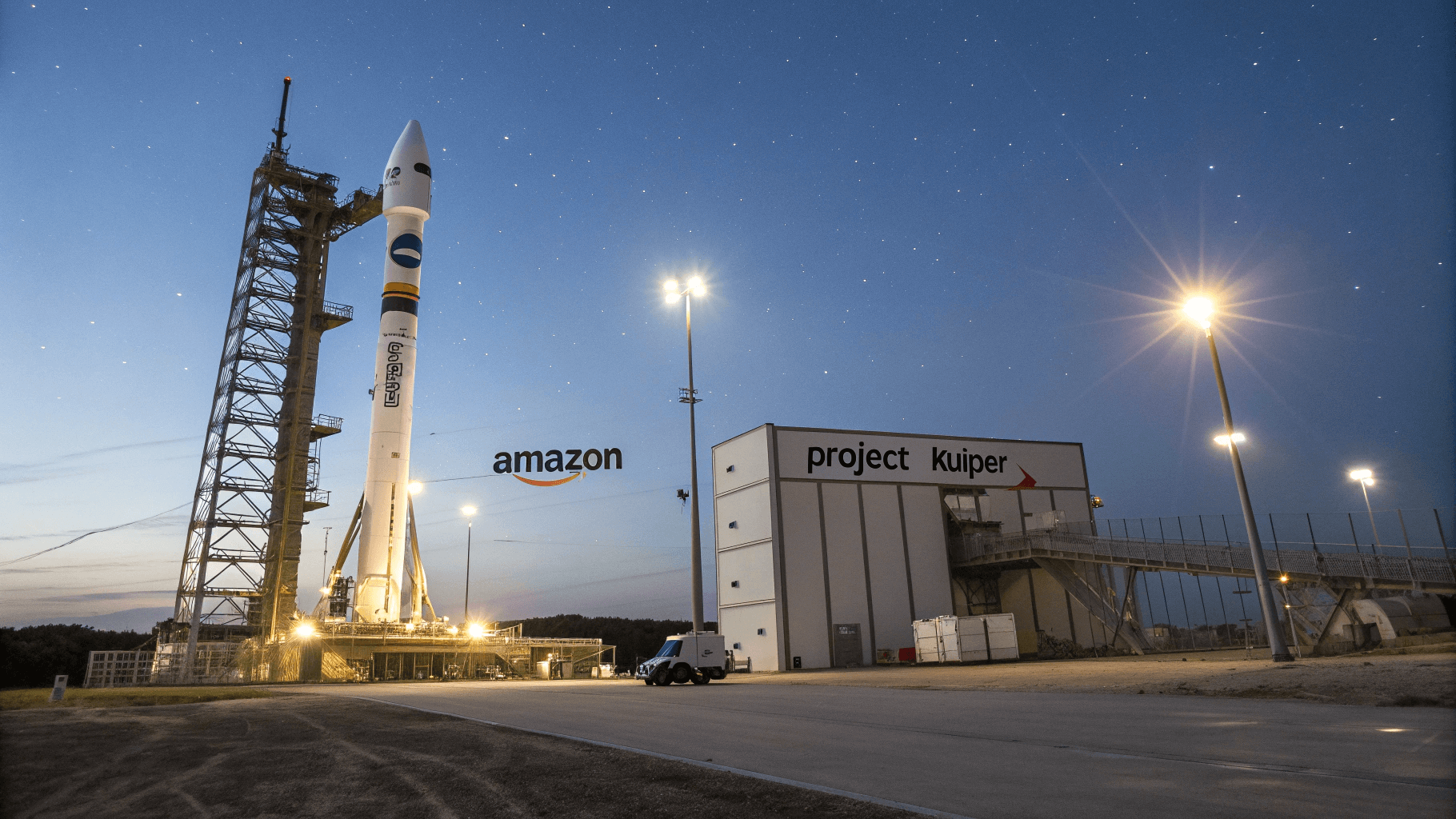On April 9, 2025, Amazon’s ambitious Project Kuiper took center stage as the tech giant prepared to launch its first batch of production satellites. However, Mother Nature had other plans. The highly anticipated “Kuiper Atlas 1” mission, set to deploy 27 satellites into orbit, was postponed due to unfavorable weather conditions at Cape Canaveral Space Force Station in Florida. As of April 10, 2025, a new launch date remains pending, but the excitement around this transformative broadband initiative continues to build.
The launch, originally scheduled for noon EDT, was set to use a United Launch Alliance (ULA) Atlas V rocket to send the satellites 280 miles above Earth. These satellites are a critical piece of Amazon’s plan to create a constellation of 3,236 satellites, designed to deliver high-speed internet to remote and underserved areas worldwide. Unfortunately, stormy weather forced ULA to scrub the mission, with the company announcing via X, “The launch was scrubbed today due to inclement weather. A new date will be shared soon.” While delays are common in space exploration, this setback only heightens anticipation for what’s next.
Announced in 2019, Project Kuiper aims to rival SpaceX’s Starlink by providing affordable, low-latency internet globally. After successful tests with two prototype satellites in 2023, Amazon is now moving to scale up. The company plans to launch over 3,200 satellites by 2029, with the Federal Communications Commission mandating half in orbit by July 2026. Once operational, this network could connect millions in rural regions, offering speeds competitive with urban broadband.
The recent delay doesn’t dim the project’s promise. Amazon has poured significant resources into Kuiper, including a $19.5 million expansion at Florida’s Kennedy Space Center in 2024, bringing its total investment there to nearly $140 million. This facility will play a key role in producing and deploying satellites at scale.
Project Kuiper isn’t alone in the sky. SpaceX’s Starlink already serves over 5 million users with thousands of satellites in orbit. Amazon, however, is leveraging its vast logistics and tech expertise to carve out a niche. To ensure launch flexibility, the company has secured contracts with ULA, Arianespace, Blue Origin, and even SpaceX—a strategic move to keep the project on track despite delays.
For the average person, Project Kuiper could mean streaming, remote work, and online education in areas where internet access has long been a dream. Experts estimate that hundreds of millions lack reliable connectivity globally, a gap Amazon aims to close. Rajeev Badyal, Kuiper’s vice president of technology, remains optimistic, telling Spaceflight Now, “We have an incredible team committed to this mission.” The first 578 satellites must be operational before customer service begins, a milestone now slightly deferred but still within reach.
While the April 9 launch didn’t go as planned, the delay is a minor hiccup in Amazon’s broader vision. With updated technology and a clear roadmap, Project Kuiper is poised to reshape how the world connects. Keep an eye on ULA’s mission page for the rescheduled date, and prepare for a future where the internet knows no boundaries.
Stay tuned for more updates on Amazon’s Project Kuiper and its journey to bring broadband to the world.
